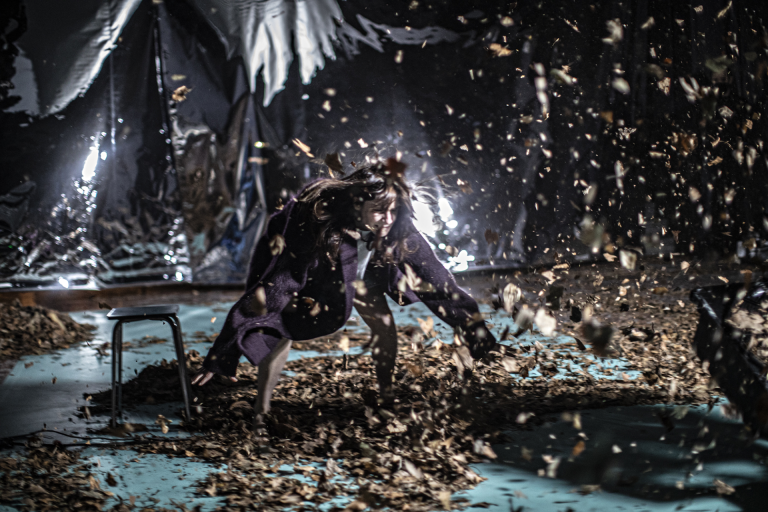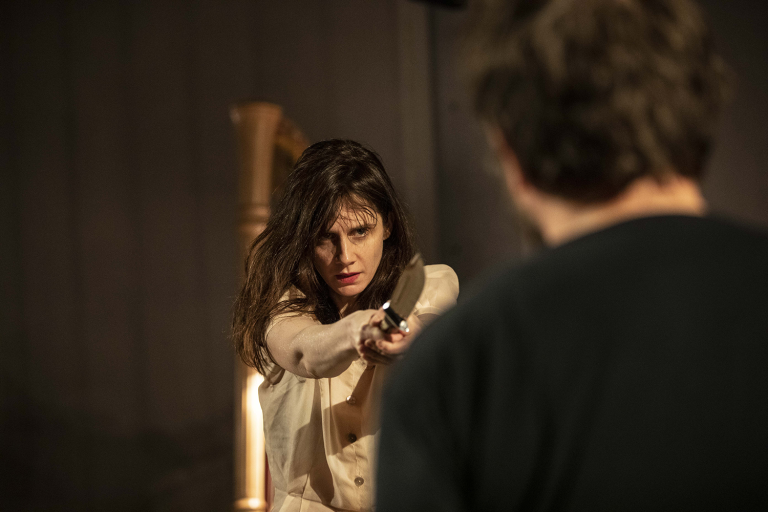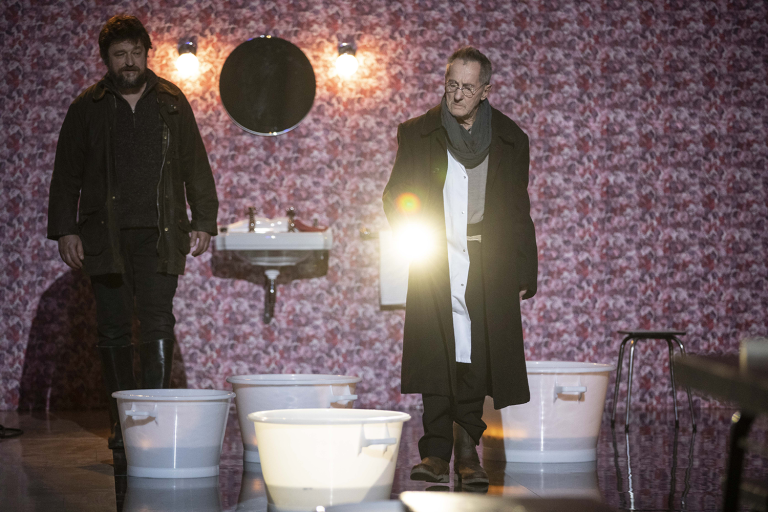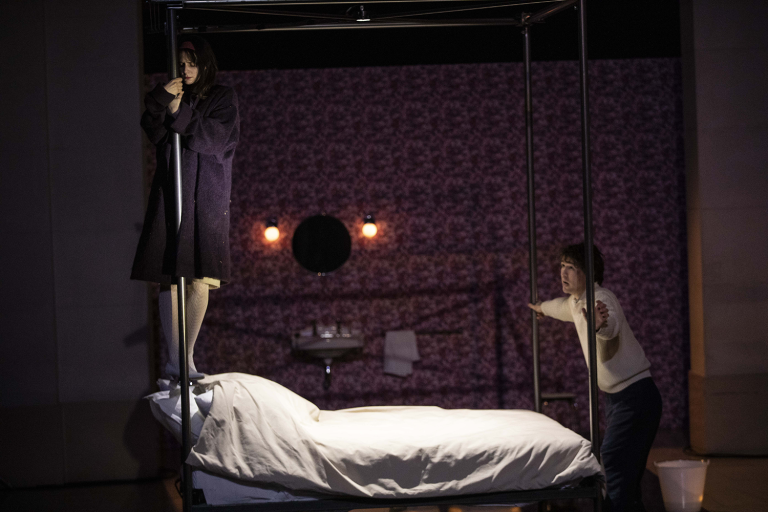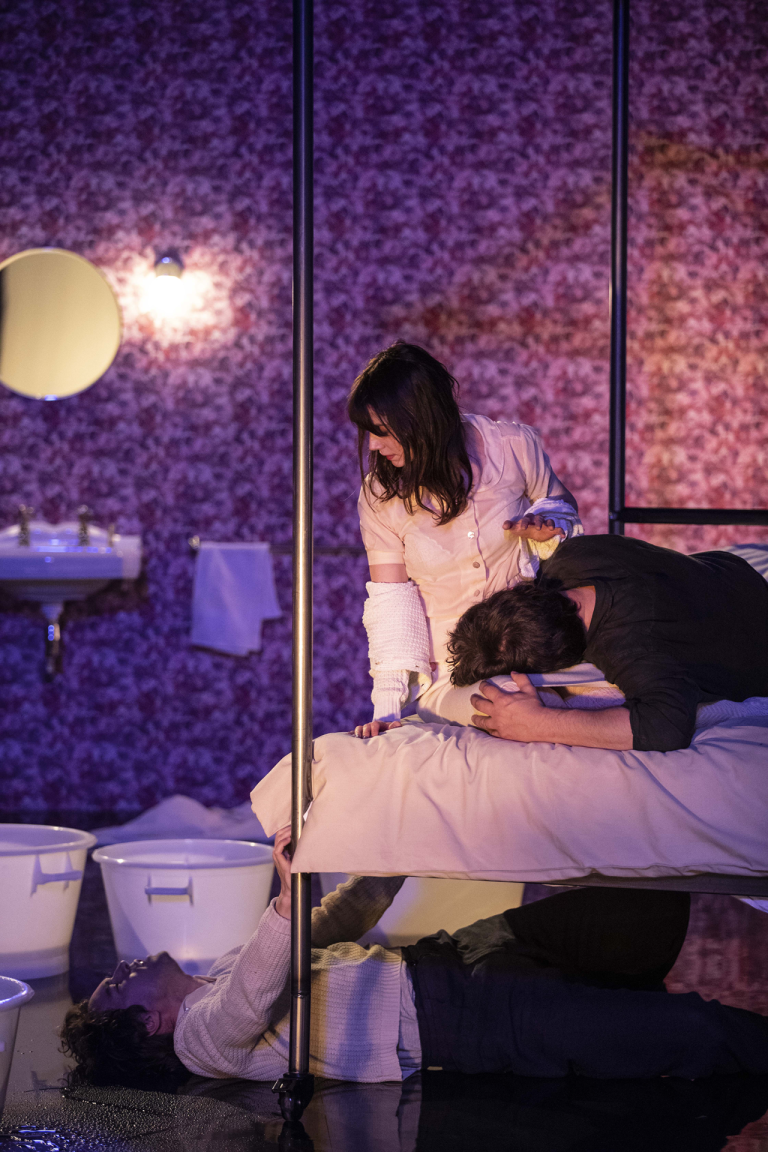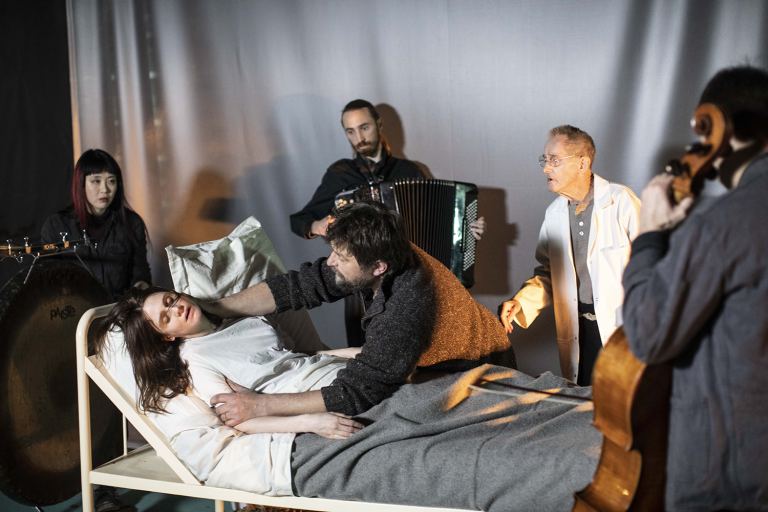The story
Mélisande is the wife of Prince Golaud who reigns over a troubled kingdom. Sad and mysterious, consumed by a trauma in her past, the young woman falls in love with the prince’s brother, Pelléas, but must free herself from her dark secret, tracing it back through her memories and her life, in order to allow herself to love.
Memory in the museum
Maeterlinck’s Pelléas and Mélisande has inspired more than one composer, with Debussy, Fauré and Sibelius all producing their own musical versions. From the Belgian author’s play and these three musical adaptations, Richard Brunel gives us his own interpretation of Mélisande’s destiny, including echoes of the story of Bluebeard. A wounded young woman whose damaged soul and body refuse to love. This Mélisande is, therefore, less about love than about overcoming trauma, less of a story about a couple than one about a mysterious woman and her relationship with men. Inside the Textile Arts Museum, which serves both as Golaud’s castle and the heroine’s memory box, the director invites us to follow the piecing together, either real or imagined, of Mélisande’s original trauma. In this space, the audience will thus relive as closely as possible with the performers Melisande's inner journey from darkness to light.
